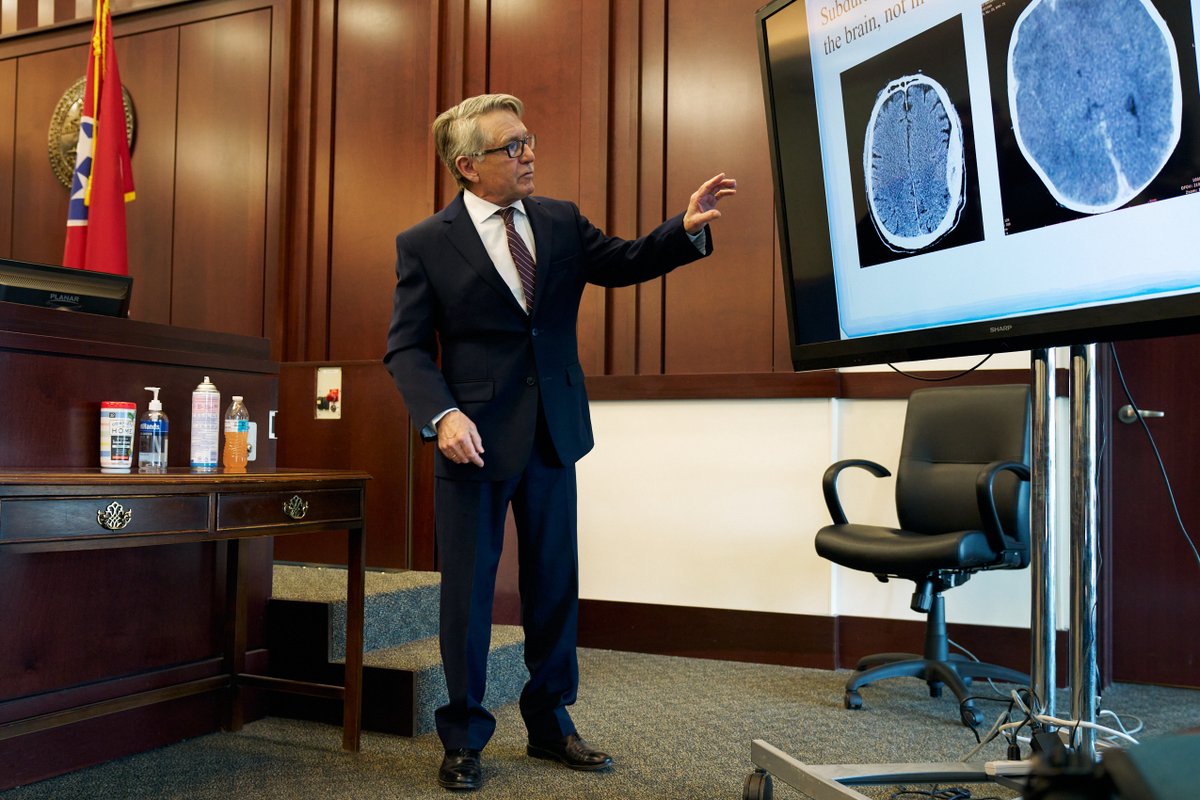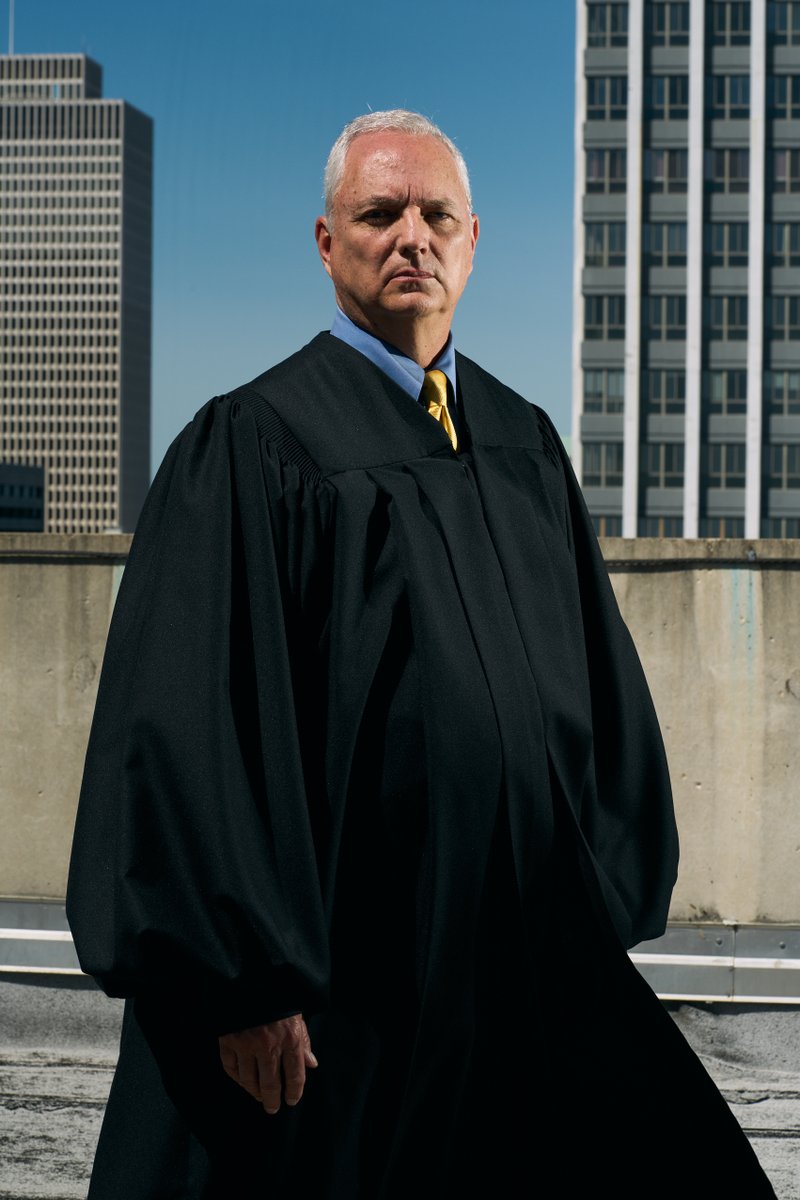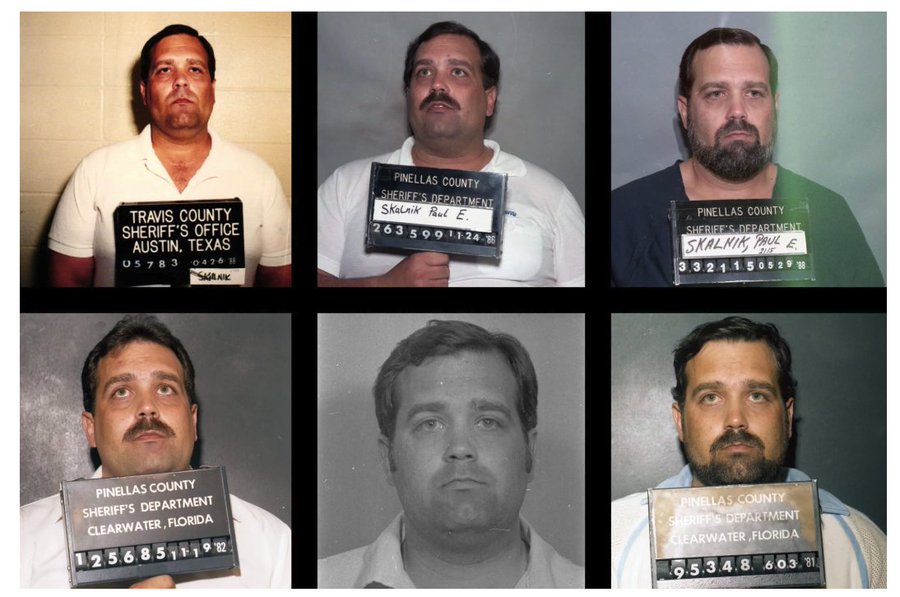I want to tell you a story about what happened when an assistant DA, Sunny Eaton, tried to undo a decades-old conviction—one that her own office had prosecuted.
The conviction rested on a diagnosis of shaken baby syndrome.
An appeals court recently called SBS “junk science.”🧵
The conviction rested on a diagnosis of shaken baby syndrome.
An appeals court recently called SBS “junk science.”🧵

Russell Maze’s son, Alex, was a preemie with a raft of health problems.
When the baby arrived at the ER with internal bleeding and bruises, a doctor said that he’d been violently shaken. Alex later died.
In 2004, Russell was convicted of murder and sent to prison for life. 2/
When the baby arrived at the ER with internal bleeding and bruises, a doctor said that he’d been violently shaken. Alex later died.
In 2004, Russell was convicted of murder and sent to prison for life. 2/

Nearly 20 years later, Eaton and her team began digging into Russell’s case.
Eaton is the director of the conviction-review unit in the Nashville D.A.’s office.
Her job is to investigate past cases and identify convictions for which there is new evidence of innocence. 3/
Eaton is the director of the conviction-review unit in the Nashville D.A.’s office.
Her job is to investigate past cases and identify convictions for which there is new evidence of innocence. 3/

Eaton talked to experts in pathology, radiology, neonatology, genetics and ophthalmology.
Physicians who looked at Alex’s medical records independently of one another came to the same conclusion: His symptoms were not consistent with abuse. 4/
propublica.org/article/nashvi…
Physicians who looked at Alex’s medical records independently of one another came to the same conclusion: His symptoms were not consistent with abuse. 4/
propublica.org/article/nashvi…
After a lengthy investigation, Eaton recommended that the court vacate Russell’s conviction. His lawyers at the Tennessee Innocence Project asked that the case be reopened.
But they would first need to convince the very judge who had sentenced Russell decades earlier. 5/
But they would first need to convince the very judge who had sentenced Russell decades earlier. 5/

At a hearing in March, Russell and his wife, Kaye, with Tennessee Innocence Project attorney Jason Gichner, looked on as seven medical experts from around the country testified before Judge Steve Dozier that Alex’s symptoms resulted from natural causes, not abuse. 6/ 

But their testimony wasn’t enough, the judge found. He decided to let Russell's original conviction stand. Judge Dozier leaned heavily on the findings in the case that were presented in court in 2004. /7 

“The court does not find an injustice nor that the petitioner is actually innocent based on new scientific evidence,” he wrote. 8/ 

Russell’s case is currently before the Tennessee Court of Criminal Appeals, which must decide whether to grant him permission to appeal the ruling. In the meantime, he remains in prison.
Eaton is left to wonder: If the D.A.’s office could not fix this, who could? 9/
Eaton is left to wonder: If the D.A.’s office could not fix this, who could? 9/

Eaton’s powerlessness, as an assistant D.A., to rectify what she sees as a wrongful conviction felt more crushing than any failure, as a public defender, to prevent a client from facing an unjust punishment.
“The weight is heavier,” she says. 10/
“The weight is heavier,” she says. 10/

Published in partnership with @propublica and @NYTMag 11/
📸by Stacy Kranitz
nytimes.com/2024/07/11/mag…
📸by Stacy Kranitz
nytimes.com/2024/07/11/mag…
• • •
Missing some Tweet in this thread? You can try to
force a refresh





